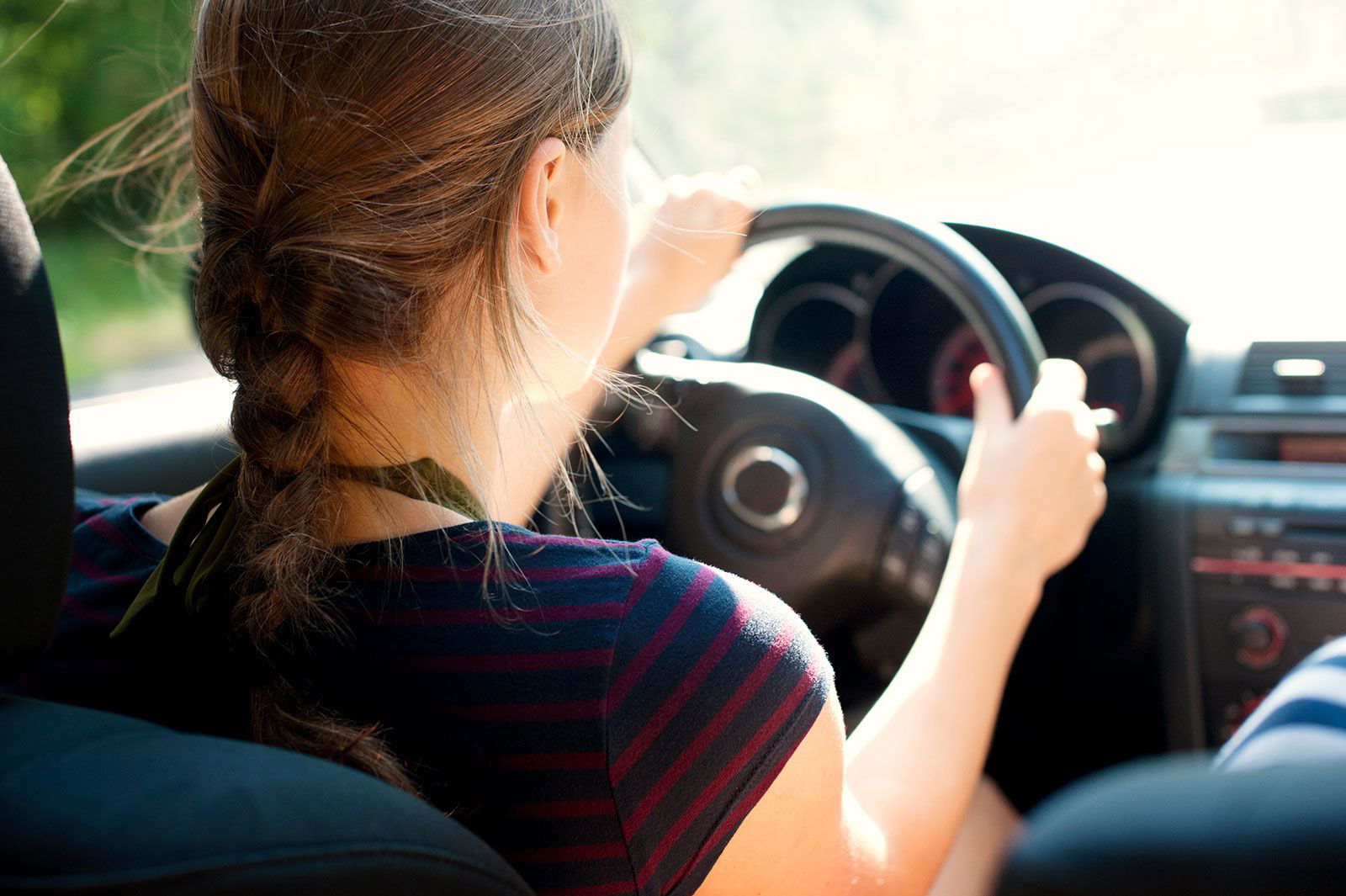Teens are delaying getting their driver’s licenses. Parents want to know why

Many teens don't want to get their drivers license as soon as they can anymore
By Madeline Holcombe, CNN
(CNN) — For many middle-aged and older people, getting a driver’s license was their first taste of long-awaited freedom –– and one they seized as soon as they could.
But many of today’s teens are putting off this rite of passage, data shows.
Nearly 40% of teens delayed getting their license by one to two years, and 30% delayed by more than two years, according to a 2020 study led by Dr. Federico Vaca, professor and executive vice chair of the department of emergency medicine at the University of California Irvine Medical School.
This continues a trend over the last 20 years: Between 2006 and 2015, the number of high school seniors with a driver’s license dropped from 81% to 72%, according to a 2017 study.
It may seem mind-boggling to adults who have been driving for decades that anyone would delay such a milestone, but it makes sense given the economic and mental health concerns surrounding teens, Vaca added.
Still, putting off getting a driver’s license may have impacts on teens safety as well as their development of independence, experts say.
Here’s what parents need to know.
Practical reasons why teens are waiting
There are several factors contributing to teens being reluctant to start driving, and some are practical.
It used to be that only kids in cities with public transportation like New York City and Washington DC could easily get around town. Now with the availability of rideshare apps, more teens can get where they need to go, said psychologist Dr. Lisa Damour, author of “The Emotional Lives of Teenagers: Raising Connected, Capable, and Compassionate Adolescents.”
They’re also so busy with all the extra activities they think they need to get into college. A recent Pew survey found that most teens feel the pressure to get good grades and list academics as one of their biggest stressors.
A lot of teenagers “are doing so much more work than you and I ever did in high school,” Damour added.
Teens also socialize a lot online, she said, which means they don’t need to leave home to hang out with friends.
Economics also plays a part. Parents and caregivers who need to spend more time working to keep the family afloat don’t have time to give driving lessons, Vaca said.
“When we have an economic downturn, things kind of tighten up. People drive less. They travel in cars less,” he added.
The mental health issues holding kids back
Mental health concerns are common among today’s teens. Forty percent of students responded to the 2023 Youth Risk Behavior Survey said they experience persistent feelings of sadness and hopelessness.
That’s a big problem that often keeps teens from getting their license, said Dr. Rhonda Boyd, psychologist in the department of child and adolescent psychiatry and behavioral sciences at Children’s Hospital of Philadelphia.
Boyd works with adolescents who have mood disorders such as anxiety and depression, and she has found that teens with mental health conditions often delay getting their driver’s licenses.
Teens with depression usually have less energy and may isolate themselves and have trouble concentrating, which can impact them accomplishing goals, Boyd said.
“Maybe just getting through school takes up so much of the time and energy that they have,” she said. “Extra things such as getting driver’s license or doing things that may lead to more independence are really harder.”
When it comes to anxiety, teens may have fears and concerns about their next and more independent stage of life, so they may avoid those things that bring them there, Boyd added.
Impacting their independence and safety
Maybe it is a relief not to have your teen eager to get on the road, but it does come with some consequences, Vaca said.
Being able to get around on their own –– which in many places means driving a car –– opens up other opportunities for teens to practice the things they will need to do in adulthood, he said.
Those landmarks include getting summer jobs, getting themselves to sports or other extracurricular obligations, and managing their own health care appointments.
“You’re not learning those experiences that you need to build on for later on,” Boyd said.
There is also a safety element that becomes especially concerning when teens wait until they are adults to first learn to drive, Vaca said.
The United States has a graduated driver’s license system, meaning there are rules, restrictions and educational requirements that taper off the more experience they have behind the wheel.
First, a teen gets their permit and has to drive with an adult. Even when they get licensed, there is a period with measures to reduce risk such as not allowing night driving or limiting who they can have in their car when they drive, he added.
“Driving is a really complex task. It’s a complex behavior, and we forget about that after we’ve been driving 10, 15, 20, 30 years,” Vaca said.
For the most part, that easing into driving doesn’t apply when someone gets their license as an adult, he said.
Still, while it is helpful to have your teen learn to drive under a graduated program and gain their independence behind the wheel in stages, younger isn’t always better, Vaca added.
“There are developmental neuro-development pieces that are really important with executive decision-making,” he said. “These sorts of things, working memory and inhibitory control … are really important, and those things mature over time.”
Should you make your kid get a license?
Does this mean you should make your teen get a license even if they don’t want to? That doesn’t tend to work out well, Damour said.
“The question becomes: who is it a problem for? Because if the family is tired of driving the kid around and wants to be relieved of carpool taxi duties, they’re certainly well within their rights to say, ‘we’re going ask you to do this,’” she said.
If your teen would rather utilize a rideshare than get their own license, then the teen should be responsible for paying for it, Damour added.
But ideally, conversations about driving would start early with teens –– because they will be 15 or 16 before you know it, Vaca said.
Families should have an eye on their child’s emotional maturity and development, he said. Are they responsible enough to get behind the wheel? Are they ready for the responsibility of driving?
Also, be aware of the possibility that a delay in these milestones could be due to an untreated mental health condition and seek out resources for your teen if you think that may be the case, Boyd added.
The-CNN-Wire
™ & © 2025 Cable News Network, Inc., a Warner Bros. Discovery Company. All rights reserved.

